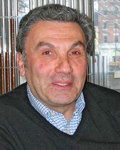2006, 2007
Benjamin A. Elman
- Professor
- Princeton University

Abstract
Abstract
This study examines how Tokugawa scholars transmitted new Chinese classical and medical texts in Japan before and after the Kansei era (1789-1800), when Japanese leaders enforced a campaign supporting the classical orthodoxy. Remarkably, Qing China under the Qianlong emperor (r. 1736-1795) was more open intellectually to new currents of thought than was contemporary Japan. Indeed, many scholars in China, Japan, and Korea were not tradition-bound, or so conservative that they could not also deal with the Western ideas that were increasingly present in East Asia as a result of the Jesuits and later the Protestants in their midst. The new trends in Qing evidential learning and the rise of new forms of traditional Chinese medicine (Kampo) competed with Dutch Learning in Japan.

